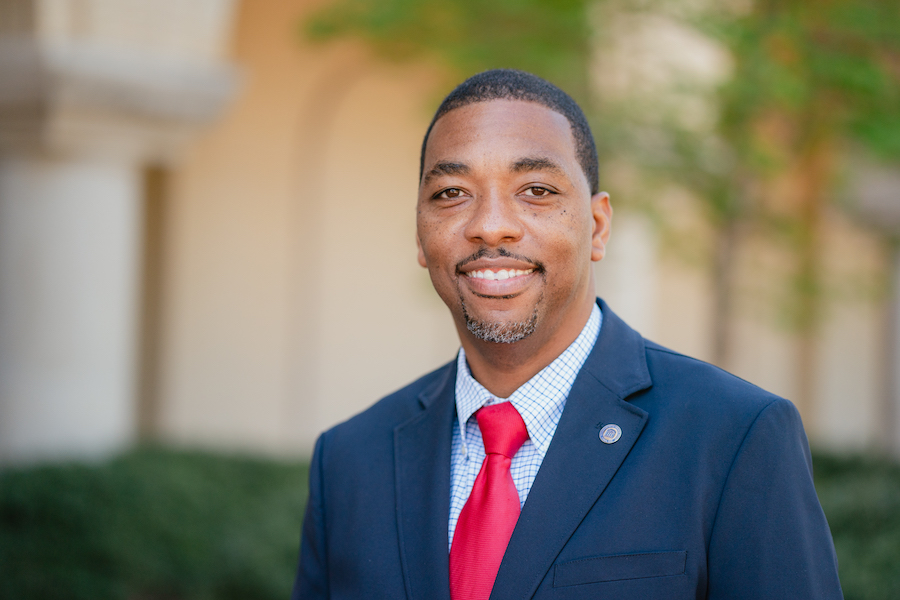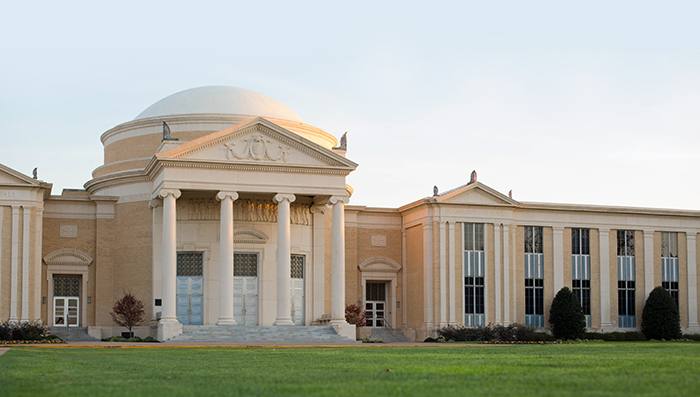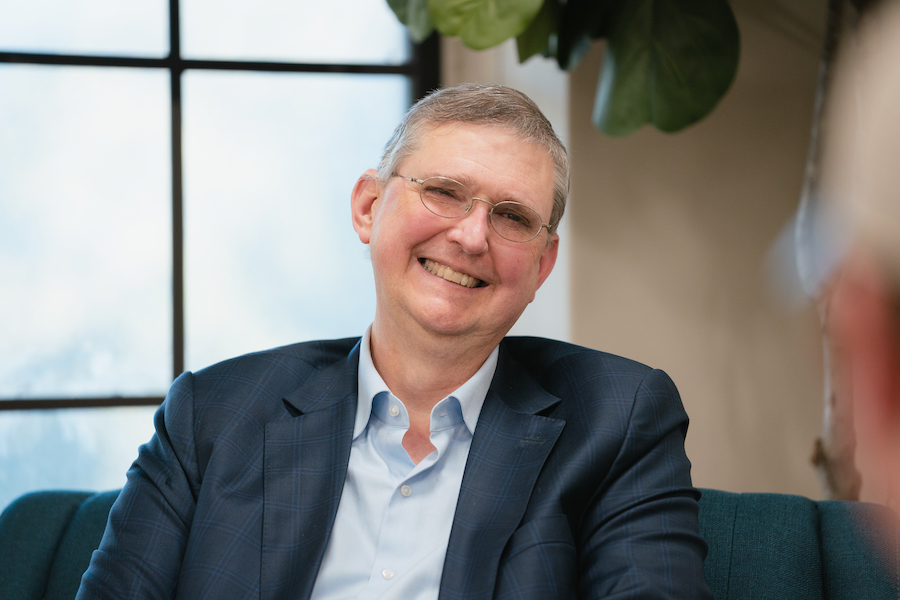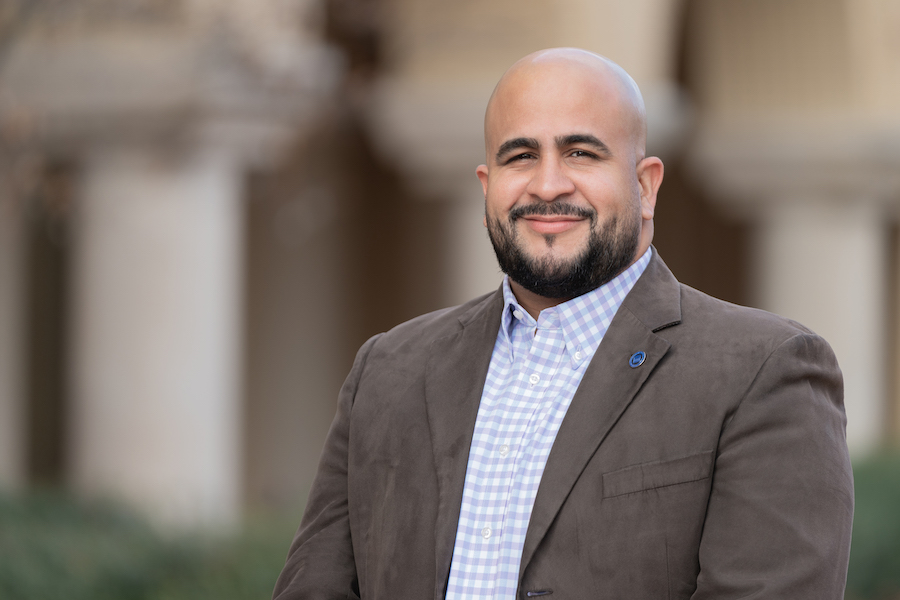ESSAY: The future of Christian higher education

Editor’s Note: The following was written by David S. Dockery, distinguished professor of theology at Southwestern Baptist Theological Seminary. This article originally appeared in the fall 2020 issue of Southwestern News.
Christian higher education is grounded in the deep realities of the Great Commandment (Matthew 22:37-39) and the commission of the resurrected Christ, who calls us to disciple the nations by teaching them all that the Lord has commanded (Matthew 28:18-20). In Ephesians 4:11-16, the apostle Paul identifies the goals for this effort, which involve building up these men and women, guiding them to maturity in faith, preparing them for lives of service, and leading them to Christian unity.
Christian educational leaders have been entrusted with the Christian faith, the body of truth once for all delivered to the saints (Titus 1:9; Jude 3), what some Christian thinkers have referred to as “the pattern of Christian truth.” Following Paul’s example with Timothy and Titus, Christian educators have been called to pass along these Christian convictions to faithful men and women who will be able to teach and lead others (2 Timothy 2:2).
As we look at Christian higher education in North America at this moment, we see a landscape characterized by challenge and change. In this article, we want to take a look at some of these challenges and opportunities as we think about the future of Christian higher education, broadly understood to include gap-year programs, Bible colleges, Christian liberal arts colleges, Christian comprehensive universities, as well as seminaries and divinity schools.
1. Mission-focused. If there is to be a future for faithful Christian higher education, then these institutions must remain mission-focused. This will mean that institutions must prioritize their calling to be distinctively Christ-centered, theologically shaped, informed by biblical truth, rooted in confessional commitments as well as a Christian worldview that seeks to reclaim and apply the best aspects of the Christian intellectual tradition.
Without these commitments firmly in place, there will be no long-term future for Christian higher education. Institutions may be able to do many things well, but if they lose sight of their calling to this distinctive mission, they will find themselves following the tragic history of schools that have lost their Christian mission and identity.
The encouraging news is that today there are more Baptist institutions who are serious about their mission than at any time in my years of work in Christian higher education (and this is my 37th year of service as an administrator or a faculty member). Today there are numerous Baptist colleges and universities, in addition to the six SBC seminaries, who are working hard each semester to reflect a serious commitment to mission faithfulness on their campuses.
2. Cultural, legal, and governmental challenges. The biggest challenges to mission faithfulness today are in the cultural, legal, and governmental areas. These have particularly intensified in recent years since the Obergefell Supreme Court decision in 2015. Sexual orientation and gender identity issues reflected in the Equality Act will have huge implications should such legislation become law (it has already been passed in the House of Representatives).
Even for institutions that receive no federal funding, the implications will be quite real in the areas of hiring rights, student and employee behavioral expectations, and tax-exempt status, among other areas. Ongoing tension can be expected between advocates for sexual freedom and those contending for traditional understandings of the First Amendment and religious freedom.
Faithful Christian educators will need to see themselves as representatives of a cultural and cognitive minority, rediscovering the book of 1 Peter and its theology of exile. The positive aspect of these challenges will be that it will become even more important to show that institutions are consistently and coherently faithful to their mission and identity statements, which frankly will be a good thing for Christian higher education.
3. Finances. Even for many schools that have worked hard to remain faithful to their mission and to demonstrate conviction with the cultural challenges, the financial issues remain at the forefront. COVID-19 has accelerated and exacerbated these financial challenges. A host of factors are involved, including funding, costs, discount rates, deferred maintenance, and issues of long-term viability. These realities will be prioritized in new ways in the third decade of the 21st century.
4. Ecclesiastical/denominational. We all must first recognize the changes taking place among churches and denominations, which are dealing with their own challenges. This recognition precedes an understanding of the implications related to Christian higher education.
The loss of trust in the relationship between churches and academic institutions has grown over the years as more and more formerly church-related institutions have walked away from their denominational commitments. In addition, we now live in a time characterized by a loss of denominational identity. Yet, there remains a need for denominational connectivity with the institutions.
The growing sector of non-denominational churches clouds the picture for some, as does the overall tarnished state of evangelicalism. Even with the ongoing challenges in the SBC, Southern Baptists tend to be an exception to these observations with their ongoing generous support for theological education in particular and for Christian higher education entities in general.
5. Globalization. We recognize and give thanks to God for the amazing spread of the Gospel across the Global South, resulting in increased strength of churches, denominations, and institutions in those parts of the world. These encouraging trends will have considerable implications for North American Christian education. In the days to come, institutions will need to look for ways to strengthen global connections through the work of entities such as the International Alliance for Christian Education and the International Council on Evangelical Theological Education.
6. Changing demographics. We find ourselves at a time when there are fewer students in the pipeline than in previous years, and this trend looks like it will continue in the years ahead. This factor, combined with the reality of the rise of the “Nones”—those who claim to be religiously unaffiliated—has resulted in a measurable decline of prospective students.
When combined with other factors, institutions will be forced to think differently about student recruitment and retention. Students are looking for shorter routes to degrees. Campuses are now multigenerational, with students ranging in age from 18-80 rather than 18-30; the pool of prospective students who are 30 and above continues to expand.
In the days ahead, there will likely be more part-time students who are not necessarily degree-seeking students. We will see more and more people exploring certificate options and micro-credentialing. Institutions will need to recognize the challenging dynamics associated with changes in majority/minority populations. Intercultural issues will need even greater clarity. We should expect multilingual and multiethnic student bodies. Racial reconciliation needs to become a renewed priority for all aspects of Christian higher education, making recommitments to what it means to think in Kingdom terms (Matthew 22:37-39; Revelation 7:9). We need to stress the importance of these commitments without replacing biblical models (Ephesians 2:11-19) with issues of intersectionality or other sociological theories.
7. Technology. The pace of the ever-changing world of technology is dizzying. Even for those attentive to these changes, it is challenging to keep up with spiraling issues in this field such as virtual reality, artificial intelligence, transhumanism, and Big Data Analytics. Wisdom will be needed to keep from “amusing ourselves to death” in the words of Neil Postman.
8. Teaching/learning/curriculum models. Traditional understandings of teaching and learning are struggling to adapt to marketplace and generational changes. What does it mean to be a teacher? Is it a sage on the stage, a guide on the side, or a wizard on the web?
What does it mean to be a learner? How is education different for residential learners, commuting learners, rooted learners (pursuing work at extension sites), or distance learners? Are these all the same?
Curriculum models will continue to move in the direction of professional studies. Christian higher educators will be wise to develop an emphasis in the area of non-profit leadership, philanthropic studies, and similar areas. Calls for certificate/mini-credential programs will only increase in almost every field of study.
9. Infrastructure/business models. The business models on our campuses are largely outdated, not unlike models that were associated with Toys R Us, Sears, and Blockbuster in the marketplace. Many campuses will need to address matters of space utilization and energy consumption on their overbuilt campuses. Unseen expenses related to deferred maintenance are quite real. Campuses will need alternative revenue models as well as efficiencies that will not negatively impact quality. Serious conversations will need to take place to help everyone think wisely about the expense-heavy faculty models of education that most all of us believe to be so important.
10. Value of Education. Those who serve in Christian higher education will have to make the case for our distinctive work in new and fresh ways as people question the value of higher education in general. What was once assumed is no longer the case. Tuition price points have been reached in most every sector and with most all programs.
People are raising new questions regarding the value of a degree when ongoing training continues to be needed as people move through multiple types of roles in their careers. We must create space and opportunity for both traditional, non-traditional, innovative, and missional opportunities within the same institution or institutional system.
11. Generational shifts. Multigenerational campuses are a challenge to work styles, a challenge to learning models, and a challenge to building a sense of community with representatives from Gen Z, Millennials, Gen X, Boomers, and Builders on the same campus, both among the student body as well as in the work force.
12. Secularization/pluralization/privatization. For years, sociologists and philosophers like Peter Berger and Charles Taylor have been telling us to be prepared for the implications of secularization, pluralization, and privatization. With the rise of secularization and pluralization (as well as the vast influence of specialization in higher education), we have observed a shift from conversations about truth to truths or to “my truth.” We now hear educators talk not about the pursuit of knowledge, but knowledges that accompany discipline-specific methodologies. All of which is quite troubling for those who believe that a Christian worldview requires a commitment to the unity of knowledge. Our changing context will also need renewed dedication to principled pluralism without adopting a value-neutral concept of pluralization.
Sadly, the place of faith in our 21st-century world is now understood only in terms of a privatized and personal preference rather than a body of truth. Peter Berger said that we now find ourselves in a context characterized by the loss of plausibility structures resulting in cognitive contamination. If there is to be a future for distinctive Christian higher education, we must emphasize the importance of the unity of knowledge, recognizing that our distinctive understanding of education depends on an understanding that all faith, all knowledge, all wisdom, and all truth finds its source in the Trinitarian God, which takes on a priority of importance.
A few years ago, Gerald McDermott wrote a wisdom-filled article in First Things, forecasting a forthcoming conflict within evangelicalism between the “Traditionists” and the “Meliorists.” He defined Traditionists as those committed to the truthfulness of the Bible, the importance of the Christian tradition (particularly focused on the Early Church Fathers and the Reformers), and an overall emphasis on the content aspect of the Christian faith.
Meliorists, on the other hand, he noted, view experience as their hermeneutical window. They not only believe that the church is to be always reforming, but also that one’s understanding of the Bible and one’s appreciation for tradition is always open to change. At best, this experiential emphasis leads to what Christian Smith called “Moralistic Therapeutic Deism” and at worst to what George Lindbeck referred to as “Expressive Individualism.” It is hard to see a long-term future for distinctive Christian higher education if institutions follow this experiential emphasis, which is influenced by the emphasis found in the liberal thought of Friedrich Schleiermacher (1768-1834).
It is time for Christian educators to make renewed commitments to the truthfulness of the Bible, to the transformational power of the Gospel, to the reclaiming of the best of the Christian intellectual tradition, to the importance of a coherent Christian world and life view, as well as to matters of life, heterosexual covenant marriage, religious liberty, and racial reconciliation.
The Southwestern Baptist Theological Seminary community has a wonderful opportunity at this strategic moment to step forward as a leader in the worlds of Baptist and evangelical higher education. May our faithful God give us a sense of hopefulness in order to help us as we seek to emphasize mission and confessional faithfulness, to strengthen Christian unity, and to live out commitments to the Great Commandment and the Great Commission.



